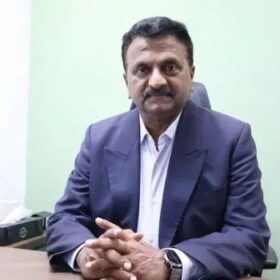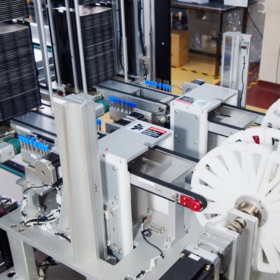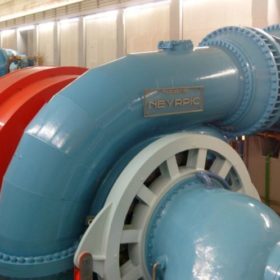A two-day programme on Capacity Building for Inclusive Solar Irrigation Adoption under PM-KUSUM was successfully held on 23–24 September 2025 at the ICAR–Indian Institute of Sugarcane Research (ICAR-IISR), Raebareli Road, Lucknow. The event brought together 30 agriculture extension officers, scientists from ICAR–Krishi Vigyan Kendras (KVKs) in 24 districts of Uttar Pradesh to strengthen their knowledge and skills on promoting solar irrigation pumps (SIPs) and the PM-KUSUM scheme.
India aims to deploy 4.9 million solar irrigation pumps by 2026 under the PM-KUSUM scheme, making it a cornerstone of the country’s renewable energy transition. Despite its potential, adoption has been uneven due to barriers such as limited awareness among smallholder and women farmers. This workshop, organized by the International Water Management Institute (IWMI) in collaboration with ICAR–Krishi Vigyan Kendras (KVKs) and Gujarat Energy and Research Management Institute (GERMI) sought to address these gaps.
The programme included a one-day workshop featuring interactive sessions and technical modules on sustainable farming through solar irrigation, the PM-KUSUM scheme, installation and operation of SIPs, financial and economic aspects, gender and social inclusion, effective farmer outreach strategies, and the role of Jan Seva Kendras in SIP adoption. The event was chaired by Dr. Ranjay Singh, Assistant Director General (Agricultural Extension), Indian Council of Agricultural Research (ICAR). Shri Anil Kumar Pathak, Department of Agriculture, Government of Uttar Pradesh, and Dr. Shantanu Dubey, Director, ICAR-ATARI Kanpur, delivered special remarks.
Dr. Deepak Varhney, Regional Researcher at IWMI, presented on IWMI’s extensive work on on-grid and off-grid solar irrigation carried out under the Swiss Development Cooperation–supported Solar Irrigation for Agricultural Resilience (SoLAR) project.
Dr. Darshini Ravindranath, Project lead of SoLAR and Senior Researcher at IWMI on her opening remarks said that solar irrigation has the potential to transform smallholder farming in India, but its success depends on local capacity and awareness. Through this workshop, we aim to equip extension officers with the knowledge and tools to support farmers effectively, ensuring that women and marginalized communities also benefit from this clean, sustainable technology.
On the second day, participants undertook a field visit to grid-connected solar sites and an off-grid site in Chinhat, gaining hands-on exposure to the practical aspects of solar irrigation adoption.
About IWMI: The International Water Management Institute (IWMI) is an international research-for-development organization that works with governments, civil society and the private sector to solve water problems in developing countries and scale up solutions. Through partnership, IWMI combines research on the sustainable use of water and land resources, knowledge services and products with capacity strengthening, dialogue and policy analysis to support implementation of water management solutions for agriculture, ecosystems, climate change and inclusive economic growth. Headquartered in Colombo, Sri Lanka, IWMI is a CGIAR Research Center with offices in 15 countries and a global





